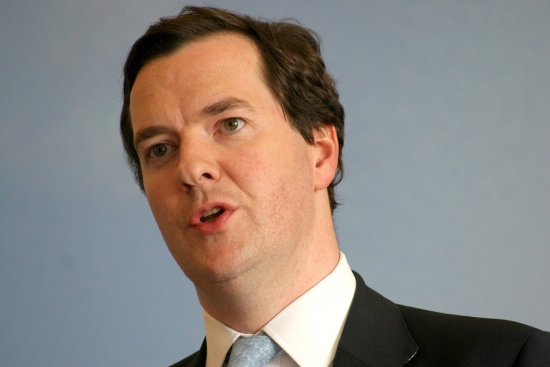Small businesses have struggled greatly during the economic downturn, with a combination of a drop in consumer demand and lack of lending on the part of Britain’s banking chains putting many in dire straits.

Chancellor George Osborne
However, the Bank of England has given the UK’s SMEs a ray of hope by announcing the extension of its Funding for Lending Scheme (FLS) – an initiative designed to encourage a boost in lending in order to help both businesses and households.
Originally the scheme was supposed to run until January 2014, but will now continue until January 2015 after the Bank of England’s Monetary Policy Committee decided this would be a more prudent move than expanding quantitative easing. As well as extending the timeframe of the scheme, non-traditional lenders such as invoice finance houses and leasing firms will be included in the scheme for the first time.
Furthermore, banks will be offered further incentives to lend, including a ten-fold increase in the low-interest funding they can acquire. This essentially means that, for every pound of additional lending to an SME, the lender can access £5 worth of discounted funding from the Bank of England.
Chancellor George Osborne, who first suggested an extension to the scheme during his March budget, believes that the move will allow for growth in SMEs.
He says; “This is a big boost for the small and medium sized businesses that are at the heart of the British economy.
“The Funding for Lending Scheme has already reduced the costs of household mortgages and loans for businesses.
“This innovative extension will now do even more for small and medium sized businesses so that they can play their full part in creating new jobs.”
Unfortunately, while it is undeniable that the FLS has improved dealings in the home loans sector, it has been criticised for failing to improve the financial access of small businesses. In fact, recent figures showed that net lending to SMEs dropped by £4.8 billion in the three months to February of this year – hardly painting the FLS to be the saviour of small businesses it was initially lauded as.
Unsurprisingly, this has piled pressure on the Chancellor, who is already struggling to increase UK economic growth. While the UK may avoid slipping back into recession, pay growth is failing to match the rate of inflation thus ensuring that many of the UK’s workers are unable to earn a satisfactory living wage.
In turn, this is causing a deficit in disposable income which is taking a direct toll on the retail and leisure industries – something which must be urgently addressed should any significant growth be achieved.
The International Monetary Fund (IMF) and other international financial experts have already questioned whether the Government’s pace of austerity measures should be considered, with most suggesting that aiming for significant growth would benefit both the general public and companies within the UK more.
Do you think the new incentives under the FLS will encourage a higher rate of lending, or are banks too afraid of another banking crisis to take a gamble on the small businesses of the UK?
Previous Post
Off-Shore Investors Target Australian Retail Property